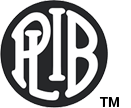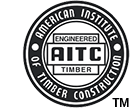PLIB’s Heat Treatment (HT) program certifies mills, wood packaging facilities, and other operations to use HT stamps or issue HT Certificates on wood that has been heat-treated to recognized standards. This service is essential for lumber and wood packaging material (WPM) that is shipped to foreign destinations.
PLIB’s HT program includes:
- Licensing agreement for HT stamps and HT or KD/HT certificates (meeting both USDA/APHIS and CFIA requirements)
- Kiln/heat chamber certification
- Ready to use generic HT schedules as well as the development of custom HT schedules (see below)
- Training
- Monthly Quality Control Supervision
Once approved, subscribers in PLIB’s HT program can apply HT stamps and issue HT certificates to meet import requirements
PLIB’s HT service can also include helping mills and heat-treating facilities develop custom kiln schedules to heat treat unique or unusual sizes or to optimize kiln efficiency and control operating costs. Reasons to consider a kiln certification include:
- Treatment of solid pack units (no stickers or lath)
- Lower than normal operating temperatures
- Unusual sizes
- Develop a more efficient schedule
PLIB has the technical staff, expertise, and equipment to conduct full kiln testing, calibration, and certification analysis to meet the special needs of the HT market. PLIB staff will work hand in hand with your crew to develop an HT program that meets the regulatory requirements and is efficient and cost-effective to operate.
For specifics about the PLIB HT program or to inquire about subscribing, call us at 253.835.3344 (U.S.) or 604.732.1782 (Canada) or contact us via email.
Heat Treatment (HT) is a process whereby lumber is heated in a closed chamber until it reaches a core temperature of 56°C for at least 30 minutes in order to kill pathogens such as insects, fungi, or micro-organisms.
Heat treatment differs from kiln drying (KD) in that HT relates to certain temperature requirements being met whereas kiln drying relates to specific moisture content requirements being met.
The difference is significant. Kiln drying can be accomplished without reaching the temperatures required for heat treating, and conversely, heat treating can be achieved (and often is) without drying the lumber.
Phytosanitary concerns are, by far, the most common reason to heat treat lumber because heat treating (also referred to as heat sterilization or heat pasteurization) is known to be an effective method to control non-native pathogens that threaten forest health throughout the world. As such, HT certification is needed to meet lumber import requirements of the European Union (EU) and other foreign countries and to obtain phytosanitary certificates from the USDA Animal Plant Health Inspection Service (APHIS) and the Canadian Food Inspection Agency (CFIA).




